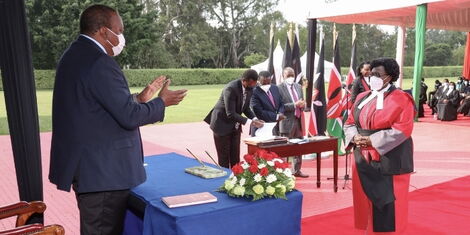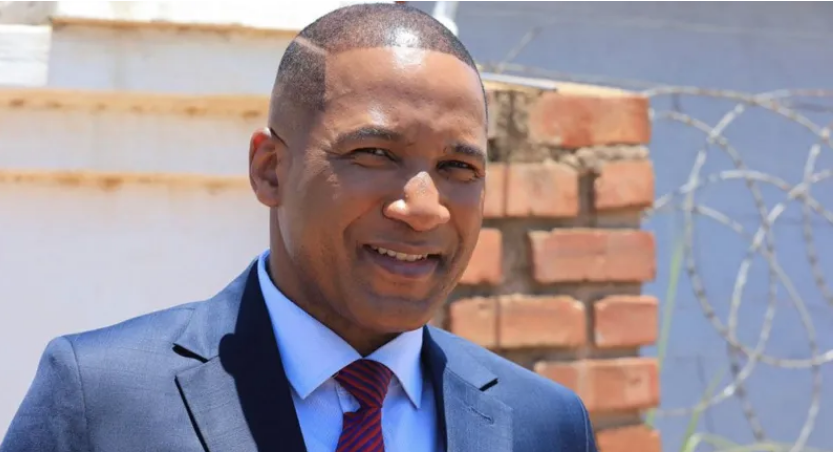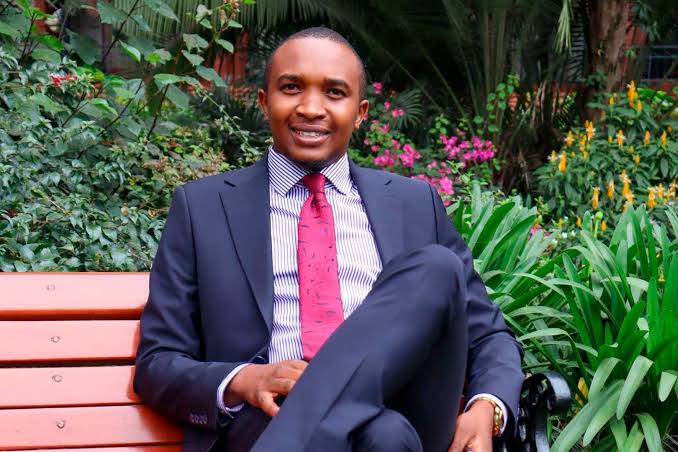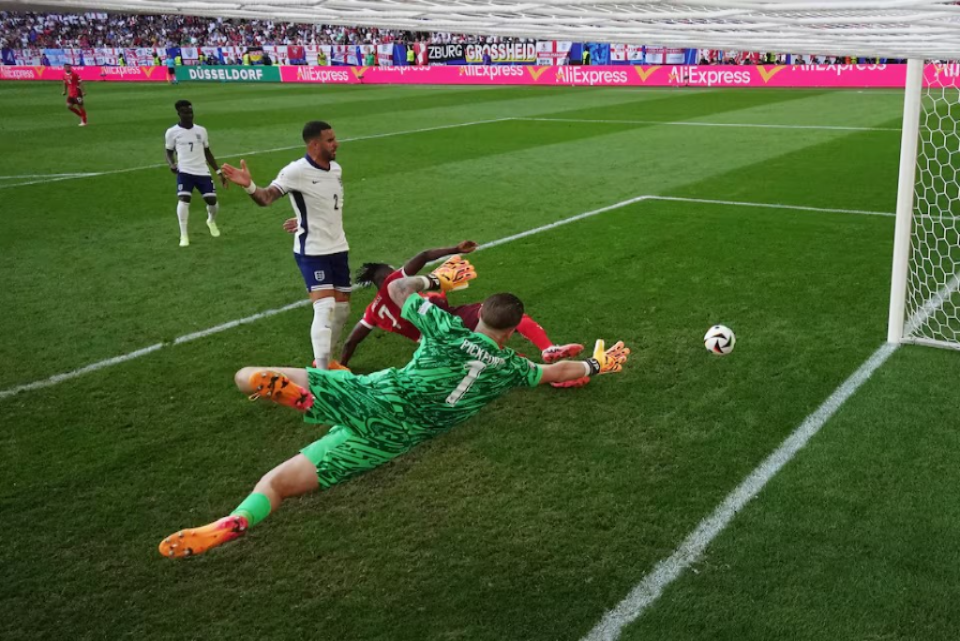As Kenyans line up to elect the next Head of State, President Uhuru Kenyatta will automatically lose powers to carry out six functions assigned to his office even before he hands over.
According to the Constitution of Kenya 2010, this happens during a period referred to as temporary incumbency in line with Article 134 and can take two forms.
“A person can hold temporary incumbency during the period commencing on the date of the first vote in a presidential election, and ending when the newly elected President assumes office; or “While the President is absent or incapacitated or at other times contemplated in Article 147,” read the article in part.

President Uhuru Kenyatta applauds a judge after she was sworn in at State House, Nairobi on Friday, June 4, 2021PSCUUnder this article, Uhuru will, therefore, not be able to nominate or appoint Judges.
Additionally, the outgoing president cannot nominate or appoint a person to public office as enshrined in the Constitution.For example, Uhuru will not be able to appoint persons to independent commissions such as the Independent Electoral and Boundaries Commission (IEBC), and Teachers Service Commission (TSC) among others.
On the other hand, the sitting Head of State will not have powers to nominate, appoint or dismiss a Cabinet Secretary or other state officers.
Other officials who cannot be appointed or dismissed include ambassadors and other diplomatic representatives.
Lastly, Uhuru will not be able to confer honours such as the Order of Grand Warrior(OGW) and Elder of the Order of the Burning Spear (EBS) or exercise powers of mercy.
The president, according to Article 133, can exercise the power of mercy at his discretion as long as the committee tasked with making recommendations does so.
This can, however, not happen during the temporary incumbency period. “On the petition of any person, the President may exercise a power of mercy in accordance with the advice of the Advisory Committee established under clause by granting a free or conditional pardon to a person convicted of an offence; postponing the carrying out of a punishment, either for a specified or indefinite period. “Substituting a less severe form of punishment, or remitting all or part of a punishment,” reads Article 133 in part.

President Mwai Kibaki handing over power to President Uhuru Kenyatta in 2013.COURTESY









